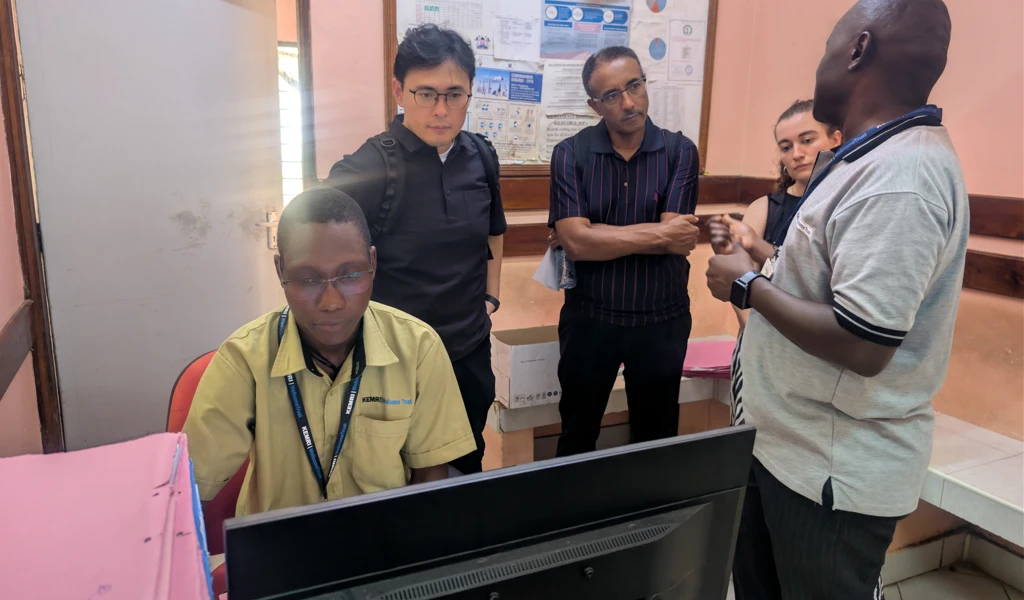In mid-2024 CEPI welcomed its inaugural Global South Fellows. The Fellowship Programme aims to build capacity for future global health leaders, enhance readiness for the 100 Days Mission in the Global South, and facilitate knowledge exchange through improved global collaboration, in support of CEPI’s vision for a pandemic-free future.
Now, halfway through the year-long fellowship, we caught up with Fama Sakho—one of the Fellows embedded in CEPI’s manufacturing and supply chain division—to discuss her experience.
Can you tell me a bit about yourself?
My name is Fama Sakho; I’m a process engineer with extensive experience in vaccine manufacturing from studying in Senegal and Canada. My expertise is rooted in vaccine manufacturing, implementation, and tech transfers.
In Senegal, where I am based, I have been working as the technical lead of the vaccine implementation program at Institut Pasteur Dakar (IPD) for the past two years. I lead a team of scientists and technicians implementing new or innovative methods of producing vaccines using cell cultures—an approach that enables faster and more scalable vaccine development compared to traditional egg-based methods.
How does your work help to contribute to pandemic preparedness and response?
My role at IPD contributes significantly to pandemic preparedness by focusing on the rapid development and manufacturing of vaccines. By participating in the implementation of the production of regionally relevant vaccines, like Measles and Rubella, this capability helps ensure that vaccine development can scale up efficiently during health emergencies, such as pandemics.
The sooner vaccines can be manufactured, the sooner protection can be offered to people, and the sooner an outbreak can be ended.
Tell me about the project you’re working on at CEPI.
I am currently on projects aiming to improve cell-culture vaccine manufacturing capabilities, especially in the Global South region. This is helping to ensure that when a future pandemic threat strikes, there is greater regional capability in West Africa to manufacture its own vaccines rather than relying on donors, helping to ensure such vaccines could be made more equitably and swiftly accessible in the future.
I also support the IPD-CEPI 10-year collaboration through its different work packages, which form part of CEPI’s Global South vaccine manufacturing network, helping to realise the above goal.
What skills have you been able to share with CEPI during your fellowship?
I have drawn on my expertise in vaccine development and manufacturing, especially in the areas of cell-based platforms. I’ve also brought up key aspects around critical materials procurement challenges—specific to the Senegalese and Global South region—that impact the region’s ability to develop vaccines at scale and pace. These insights will help to inform a model for CEPI’s support in other similar regions.
I have also shared my experience from participating in conferences like the World Vaccine Congress 2024 in Barcelona and the World Health Summit 2024 in Berlin. This has enriched discussions around industry standards, quality control, and the latest innovations in vaccine development. I will also be presenting on my experience with vaccine manufacturing in West Africa at this year’s World Vaccine Congress taking place in Washington DC.
What skills have you learned while being a Global South Fellow at CEPI?
I have learned a great deal about global collaboration and the strategic planning required for pandemic preparedness. For example, I have learned more about how disease modelling and digital twins can help predict disease spread and support scenario planning, making them valuable tools for rapid response during pandemics.
Working with teams from diverse backgrounds has enhanced my understanding of different approaches to vaccine development and distribution. These skills will be immensely useful when I return to my role, as I will be better equipped to lead my team with a more global perspective on vaccine manufacturing. This will help better foster international partnerships and ensure that our processes are aligned with global best practices.
What do you hope to have achieved by the end of your Fellowship?
I hope to have contributed to the development of more efficient and scalable cell-culture vaccine manufacturing systems that can be deployed in response to future pandemics and local epidemics like Marburg or Lassa fever. I also aim to strengthen international collaborations and improve the capacity for technology transfer across different regions, for example, through the West Africa Engagement Committee at CEPI.
Ultimately, I believe that bringing the new insights and strategies I’ve learned through my Fellowship back to IPD will enable us to enhance our vaccine development and manufacturing efforts to strengthen public health security in Africa.


.webp)

